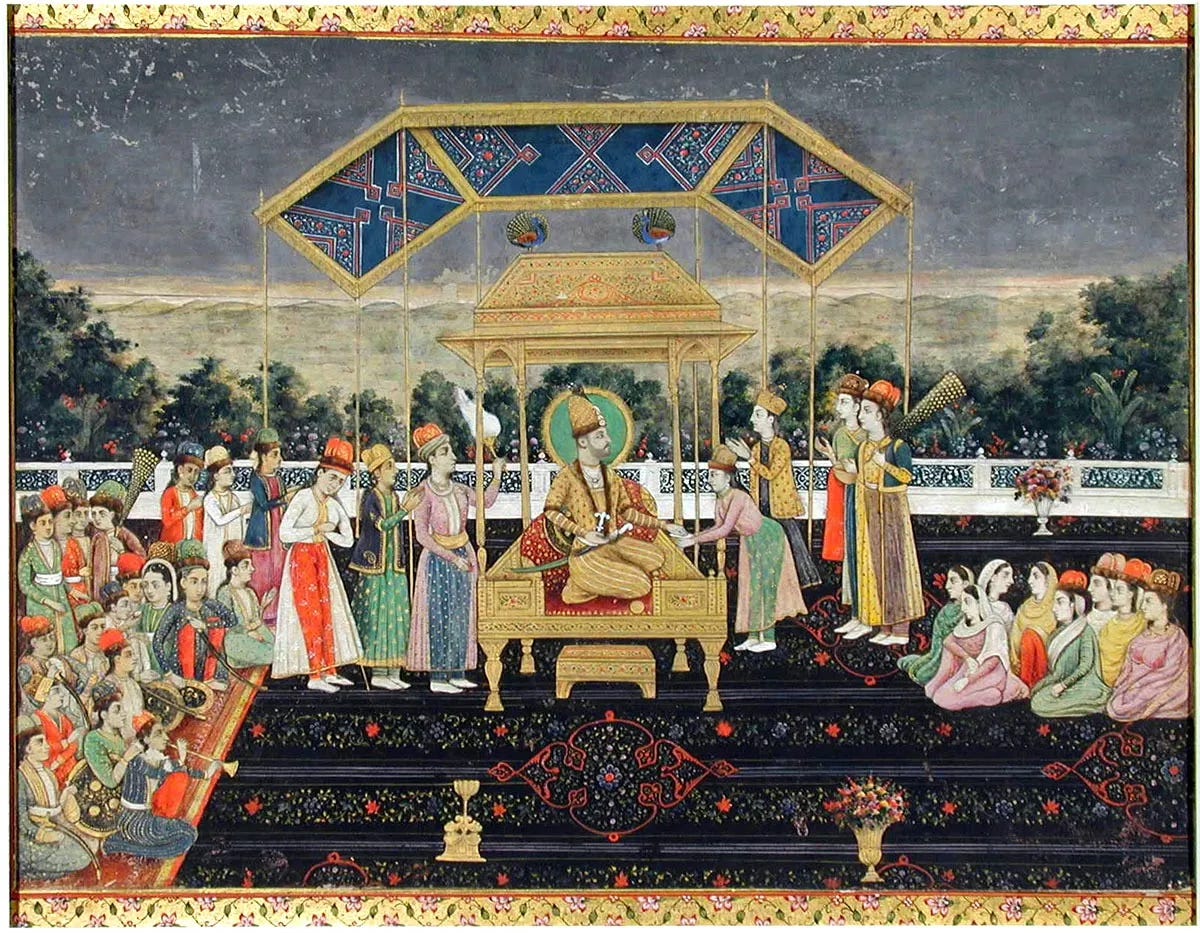Today in History: March 22-25
NATO intervenes in Kosovo, the Saudi King Faisal is assassinated, and more
If you’re interested in history and foreign affairs, Foreign Exchanges is the newsletter for you! Sign up for free today for regular updates on international news and US foreign policy, delivered straight to your email inbox, or subscribe and unlock the full FX experience:
PROGRAMMING UPDATE: As I hope you all know, Foreign Exchanges is on a break that is scheduled to end on April 2. I hope you’re all doing well, and thanks for reading!
March 22, 235: Roman Emperor Severus Alexander is assassinated during a mutiny of the Legio XXII Primigenia at the city of Moguntiacum (the modern German city of Mainz). His assassination ended the Severan dynasty and brought to the throne legionary commander Maximinus Thrax, the first of the so-called “barracks emperors” (soldiers who were proclaimed emperor by legionaries rather than taking office via a political process). Maximinus Thrax struggled to attain wide recognition and in 238 revolts began to break out in what became known as the “Year of the Six Emperors” on account of the fact that the empire saw six imperial claimants over the course of the year. That chaos in turn led into what historians call the Crisis of the Third Century, during which the empire broke apart into three constituent parts (the main empire, the “Gallic Empire” in modern France and Britain, and the “Palymrene Empire” in the Levant and Egypt). The Crisis finally ended when Diocletian restored imperial unity in 285.
March 22, 1739: Amid rising tension between Delhi merchants and Nader Shah’s occupying Iranian army, rumors spread that Nader Shah himself had been killed in some sort of violent encounter. Perhaps sensing an opening, a mob of Delhi residents attacked the Iranians, killing hundreds of them. As it turned out Nader Shah was very much alive, and in response to the violence he unleashed his very angry army on the city. The ensuing sack was among the most violent in history, with perhaps as many as 30,000 people killed in a matter of hours.

March 22, 1995: Russian cosmonaut Valeri Polyakov returns to Earth from the orbiting Mir space station, having been there since January 1994. The nearly 438 days Polyakov spent in orbit remains the longest spaceflight in history. The mission was intended to test whether human beings can mentally and physically endure extended space missions, such as would be required for any manned mission to Mars. Polyakov’s experience showed that, which he did experience some emotional effects, he suffered no significant cognitive or physical impairment due to the duration of his time in space.
March 23, 1879: A small Chilean army defeats a much smaller Bolivian force at the Battle of Topáter, which helped trigger the 1879-1884 War of the Pacific. The conflict, fought over a variety of issues including control of Pacific shipping routes and nitrate deposits in the region, ended with Chile victorious over a Bolivian-Peruvian alliance. The resulting settlement saw both defeated countries ceding territory to Chile, including Bolivia’s entire parcel of Pacific coastline.
March 23, 1991: The rebel Revolutionary United Front, with the support of Liberian rebel leader Charles Taylor’s National Patriotic Front of Liberia, invades Sierra Leone, kicking off the 1991-2002 Sierra Leone Civil War. Sierra Leone government eventually emerged victorious thanks in part to substantial foreign assistance, particularly from the UK. The RUF was later charged with committing a vast array of war crimes. Taylor became president of Liberia in 1997 but lost power in 2003 toward the end of the overlapping Second Liberian Civil War. Extradited to The Hague, Taylor was tried and convicted in 2012 on 11 war crimes counts and sentenced to 50 years in prison by the post-war Special Court for Sierra Leone.
March 24, 1944: Dozens of prisoners at a German POW camp near the town of Sagan called Stalag Luft III escape in a daring overnight action. In total 76 prisoners escaped, but 73 of them were eventually tracked down and recaptured, and 50 of those were executed on Adolf Hitler’s orders in what was later deemed a war crime. The escape is best known as the inspiration for the 1963 film The Great Escape.
March 24, 1999: NATO begins its bombing campaign in Yugoslavia in an effort to force an end to the 1998-1999 Kosovo War. It took 78 days of sustained bombardment but the Yugoslav government of Slobodan Milošević did ultimately agree to stop fighting and Kosovo became de facto independent. Kosovo declared independence in 2008, but that declaration is still not universally recognized. The campaign was conducted without United Nations authorization and its illegality has been disputed.
March 25, 1821: Greek insurrectionists officially declare a revolt against the Ottoman Empire, marking the start of the Greek War of Independence even though the fighting had actually begun in mid-February. The war did of course end with Greece seceding from the empire and becoming an independent state, and so this date is commemorated annually as Greek Independence Day.
March 25, 1975: King Faisal bin Abdulaziz of Saudi Arabia is shot and killed by his nephew, Prince Faisal bin Musaid, in the royal palace. Initially Prince Faisal was declared legally insane, but that diagnosis was overturned. It’s possible the insanity diagnosis was an error or a failed attempt at a coverup and that Prince Faisal acted to avenge the death of his brother, Prince Khalid bin Musaid, who was shot and killed by police during a 1966 protest. On the other hand, it’s also possible the Saudis revoked Prince Faisal’s insanity diagnosis simply so that they could execute him under Saudi law. King Faisal was succeeded by his brother, Khalid bin Abdulaziz, in what remains the only violent succession in Saudi history.

